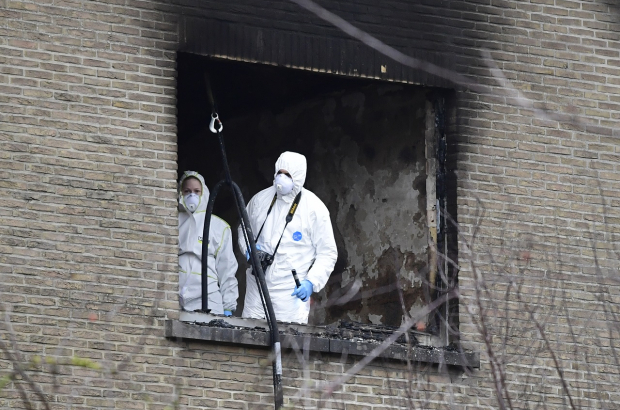- Daily & Weekly newsletters
- Buy & download The Bulletin
- Comment on our articles
Number of house fires in Flanders up 44% in two years
The number of house fires in Flanders has risen significantly over the last few years, according to the federal Civil Security agency. A safety adviser with a Flemish Brabant fire zone points to more and more digital devices and electric mobility as the biggest reason.
According to the Civil Security, there were 4,362 calls to douse flames in private homes in 2015. In 2017 – the last year for which figures are available, there were 6,270 calls – a whopping 43.7% more. The figures are based on recordfs from 90% of the fire zones in Flanders.
According to Tim Renders of the East Flemish Brabant fire zone, this is mostly due to more and more devices that require charging with electrical cables. He points to smartphones, tablets and computers but also electric bicycles, hoverboards and scooters.
“We load an enormous number of devices these days,” he told VRT. “We didn’t have all of these things previously, so there was less risk of fire.”
The biggest danger, he notes, is charging a phone or other device on a sofa, a bed or under a pillow – something teenagers do a lot of. Because the heat cannot dissipate the way it can if the phone is placed on a hard surface, the risk of fire is increased exponentially. The danger increases again if this is done overnight, as it usually is, since you won’t smell the smoke right away.
Renders, who specialises in fire safety measures, suggests charging phones and all other devices on a hard surface during the day, and preferably under supervision. He also suggests loading devices in the same room where a smoke detector is present. If your electric mobility is charged in a garage, for instance, place a smoke detector there, too.
From 1 January, smoke detectors are required in all households in Flanders, including rented accommodations. “Buy enough of them and get the ones with a battery that’s good for 10 years,” Renders advises. “Then you know they are decent quality.”
He suggests mounting smoke detectors where the risk of fire is greatest, such as in the kitchen or where curtains and furniture are present, and certainly in bedrooms or just outside them. The larger the house, the more smoke detectors should be placed.
Houses should be equipped with wireless smoke detectors, he said. This is a group of detectors that are interconnected, so if one goes off, they all go off. “Because if the smoke detector in the washroom goes off when you’re sleeping, you might not hear it all the way in the bedroom.”
Finally, pull out power plugs when the weather is stormy or if you’re going to be away for more than a day. While this used to be a common habit “unfortunately, people don’t do it anymore,” said Renders. “There are a lot of components in the plug that can be a fire risk.”
The fire safety expert also thinks that fire zones should provide more accurate information about the cause of the fire and that a central databank should be established. “For instance, a ‘short circuit’ means nothing to me,” he said. “I want to know what kind of device caused this fire, and what brand and model it is. We can map this information and it could lead to recalls.”
Photo: A fire in an attic apartment in Dilbeek killed two people earlier this year ©Laurie Dieffembacq/BELGA



















